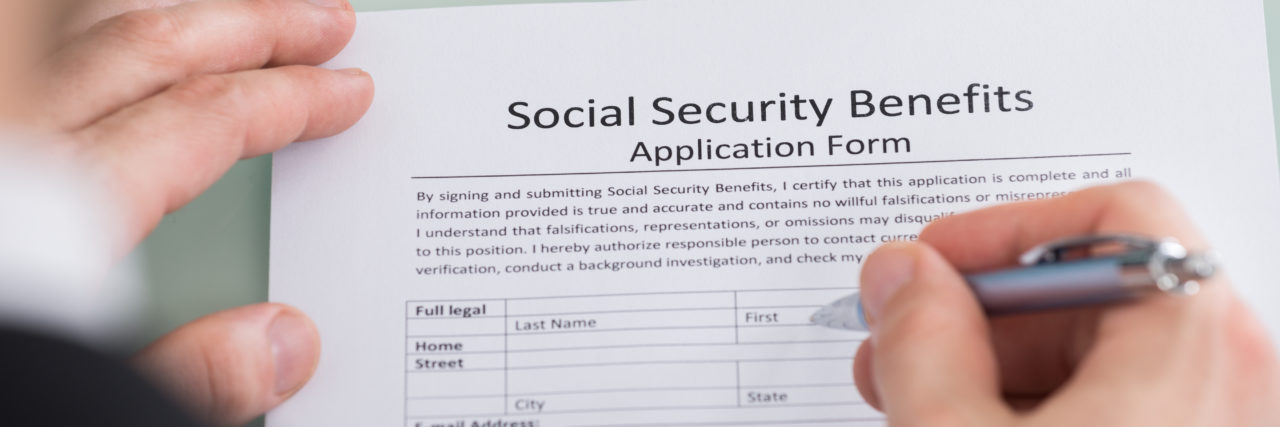Waking up on the 30th anniversary of the ADA, I had a lot of thoughts.
A few people thought it was something I’d want to celebrate, and in a way I do. While I’m grateful for it and the history of it getting passed by the courageous and incredible efforts of disabled people, I am going to take this moment to be curmudgeonly.
I take most of this from my experience as someone who worked with Section 8 and homeless housing for four years. I now help run a support group of 500+ people with my disability.
The ADA is a law that isn’t well-enforced. For example, public spaces being inaccessible are enforced by disabled people bringing claims and their legal fees are not always covered.
Social Security disability averages $1,250 a month and SSI recipients get less than $800. While waiting the two to five years it can take to be approved, many receive no financial help. They are also basically negotiating down people’s back pay in some states. Right now the Senate is attaching the TRUST Act to the CARES Act to further cut Social Security and Medicare.
Meanwhile, people I know with my disability are going homeless, while others camp in inaccessible and unsafe apartments. Most homes in the U.S. do not allow a person in a wheelchair to even use the bathroom. The waitlist for accessible housing is 8-15 years in many places in the northeast. Massachusetts Housing is currently beginning to process claims from 2008. The majority of these units are 1 bedrooms, not allowing for a live-in caregiver or family. Housing vouchers also take years to obtain. Many shelters are inaccessible and unsafe. When you’re moved “to the top of the list” for being disabled, you are still usually on a long waiting list.
Many of us need to live in cities where transportation programs are available, yet public transport is inaccessible. While I’m grateful for ride programs, they’re often restricted to only doctors appointments or they are horribly inefficient and sometimes even unsafe. I cannot use my local program.
Those who are disabled enough to rely on caregiving or medical equipment often need Medicaid. The current income limit for Medicaid is around $1,400 and the asset limit (what you are allowed to have in your bank account) is $2,000 in most states. This is a system that keeps disabled people from working when they can and sometimes from accepting gifts and inheritances that would change their lives (the vehicles to do this are complex and require lawyers many cannot afford). It ignores the fact that someone can perhaps earn an income on a phone or computer, but be unable to cook, clean, dress, use the bathroom or bathe without help.
Furthermore, you can only work a limited amount on SSDI, otherwise it is considered “substantial gainful activity.” Once you lose Social Security, many programs consider you no longer legally disabled, so you no longer qualify. You may also lose Medicare, which for some is the only national healthcare plan they can buy. Some cannot even get coverage outside their county! This is not good if you’re not sick, but very bad for someone with complex health issues. Most insurances have a protection that says if you need care that cannot be provided in-network, you must be allowed out-of-network coverage. However, insurance companies make it a Herculean and months-long effort to get permission to submit these claims and to get them reimbursed — sometimes while people are in dire and life-threatening situations.
If people who rely on Medicaid get married, they often lose their services. Many people consider divorce when they get very sick. This one is often considered “just a piece of paper.” However, when you lose your job, your ability to work, your ability to oftentimes participate in big events like birthdays, weddings and funerals, safely access a restaurant or even have a livable home, this on top of it all hurts.
I think people have the capacity to imagine five or so years of this, not a lifetime (during the pandemic we saw many can’t even deal with months of isolation). Almost every life milestone can feel stripped away, and for many people, marriage is one of them. The clause actually says you cannot “hold out as married,” which means if you call someone your spouse or have joint accounts, it can trigger an investigation and your SSI and/or Medicaid can be revoked.
Some of us cannot get naturally pregnant, and yet these restrictions on income, caregiving and marriage can keep us from qualifying for adoption, let alone get a cushy enough job to have access to surrogacy insurance. If we cannot get married or even “hold out to the public as married” we cannot use our partner’s insurance. We also have to worry that having a baby together may appear to be “holding out as married.”
We have a long way to go to make it so people with disabilities can feel like they have a shot at being able to afford their healthcare needs while also having access to public spaces, safe housing, work, marriage and children. This is just brushing the surface!
On this day, celebrate the ADA — the one major thing this country has done to listen to disabled people in the last 30 years. But also ask, what more can we do?
Getty image by AndreyPopov.

